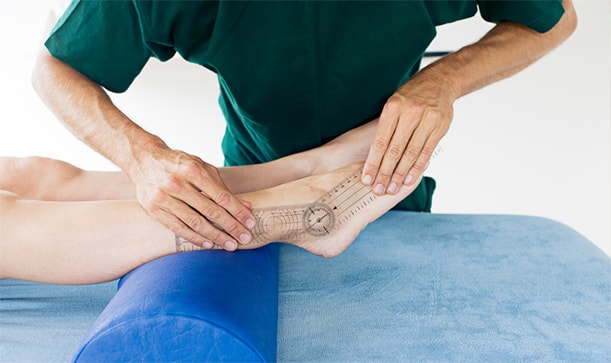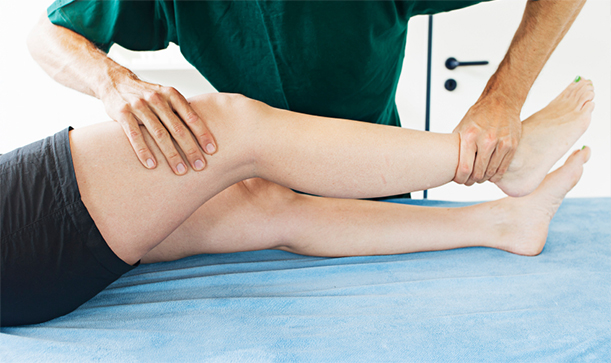CK Physiotherapy
AREAS COVERED
W7, W5, W13, Ealing, West London
57 Elthorne Avenue
Hanwell, W7 2JY
T: 020 8566 4113
M: 079 572 46185
E: info@ckphysio.co.uk
Location / Parking
We are situated in Hanwell, between Boston Manor Road and Northfields Avenue, south of the Uxbridge Road.57 Elthorne Avenue
Hanwell, W7 2JY
There are parking restrictions Mon - Fri 9-10am and 2-3pm. If you need a permit during this time please inform your therapist when you arrive. There are no parking restrictions at other times.
Opening Times
Please phone the number above during working hours to make an appointment. Our reception service will be happy to book your session.
London Underground / Bus Services
London Underground
10 min. walk from Boston Manor Tube Station.
15 min. walk from Northfields Tube Station.
Bus Service
E8, E3, E2, 207, 607, 83
Request Call Back
Our Blog
Relieving Repetitive Strain Injury (RSI) with Physiotherapy Treatment
By: BryanKelly (Psst, View author in Google Plus) Date: Mar 6th, 2019Repetitive strain injury is a very common medical condition that affects people from all walks of life. Individuals may suffer from very mild cases which only cause minor discomfort to severe cases which interfere with everyday life. Understanding the causes, symptoms, risk factors, and how physiotherapy can help is important in the treatment and prevention of a repetitive strain injury.

What is Repetitive Strain Injury?
Repetitive strain injury (RSI) is a broad term that refers to a condition which can affect any part of the body. The most common parts of the body that individuals develop RSI in is the hands, wrists, elbows, neck, and shoulders. It is pain and discomfort that is caused by overuse of muscles, tendons, and nerves. The tissues at the site of the affected area become inflamed and damaged as a result.
A damaged muscle means that tears have occurred in the muscle. If the muscle is overworked, it does not have time to repair itself. This leads to a build-up of scar tissue which causes pain and discomfort. Nerve muscles can become pinched as a result of the damage to the muscle and the thickening of scar tissue.
Causes of Repetitive Strain Injury
The possibilities are limitless as to what causes RSI. In general, it is repetitive motions which lead to overuse of the muscles. When you lift weights in the gym it is recommended to not work the same group of muscles every day. The reason is that your muscles need time to heal properly.
The same concept applies here. Your muscles can only perform a repetitive motion for so long before they become fatigued and need time to heal. For instance, someone who types for very long periods of time day in and day out is subject to carpal tunnel, which is overuse of the wrists. Tennis elbow is the overuse of wrists and elbows and despite its name, does not just affect tennis players.
Although some activities and jobs are predisposed to causing RSI, any long-term repetitive motion, no matter how small, can cause this type of injury.
Symptoms of Repetitive Strain Injury
Individuals with RSI can experience a wide range of symptoms that vary in the degree of severity. Pain at the affected area is the most common symptom those with RSI develop. RSI sufferers may also experience throbbing or stiffness at the site as well. In severe cases, individuals will experience weakness or even numbness at the site.
Symptoms typically start out very mild and progressively get worse without treatment. The rate of progression depends on how much strain is put on the affected area. In severe cases, swelling can even occur in the affected area. The very first signs of RSI are typically very mild discomfort and possibly tingling at the affected site.
This discomfort will go away within a few days after the activity stops. Severe cases will cause pain that does not go away after the individual has stopped engaging in the activity.
Who is at Risk for Repetitive Strain Injury?
Anyone is at risk for developing RSI, but there are certain groups who are at a higher risk than the general population for developing this condition. Individuals who carry out repetitive motions excessively. These include athletes, musicians, and typists just to name a few.
Those who have poor posture, work in cold conditions or work too fast are at a higher risk of developing an RSI. Working with equipment which is too heavy or insufficient training also puts you in the higher risk category.
How Can Physiotherapy Be Helpful?
RSI is normally goes overlooked or diagnosed in the early stages because the pain and discomfort experienced is minor and goes away once the individuals take a break from the activity. By the time individuals suffering from RSI decide to seek help, the condition has progressed to a point of having pain that disrupts day to day life. Physiotherapy will provide relief to those with RSI.
The first step in treatment is to receive a thorough examination and a definitive diagnosis. It is important to first determine the source of the injury. Your physiotherapist will create a plan which is tailor-made to suit your particular needs. The treatment plan will include methods of relieving the tension in the affected area and helping to increase the strength of the muscle.
Effective Prevention Methods
The good news is if you know you participate in an activity or hold a job that puts you at risk for developing RSI, there are preventative measures you can take.
For starters, maintain good posture. Whether you or sitting at a desk or lifting heavy items, do so in the correct manner. Secondly, take frequent breaks from repetitive motions. Let those particular muscles either rest or move in a different way. This will relieve the tension of holding them in the same position for long periods of time.
Lastly, there are exercises you can engage in that will help. Both pectoral stretches and lat stretches will help with round-shouldered problems. Neck stretches not only feel good but are a great way to relax the neck muscles.
Most individuals develop RSI in their forearms. For this reason, forearm stretches are the most effective at preventing RSI. It is important to note that you should only engage in activities which you are able to do so safely and never push yourself to the point of pain.
RSI can affect your quality of life. Seeking expert help from your physiotherapist is the best way to both treat and prevent RSI. They are experts in understanding how the muscles, nerves, and tendons in the body, work.
Your physiotherapist will be able to set up a regular schedule, so they can work with you to relieve pain, evaluate progress, and give you strategies to use in your everyday life to prevent a reoccurrence. Do not live your day to day life in pain and discomfort when you don't have to. Contact us today for more information and to book your first appointment!
Other articles worth reading:
How to Avoid Repetitive Strain Injury
Suffering from Strain Injury? We Can Help You
How to Get Relief from Repetitive Strain Injuries
How Physiotherapy Helps Recovering from MSD
Common Sports Injuries That Can Be Treated with Regular Physiotherapy





